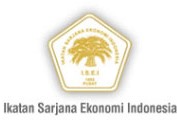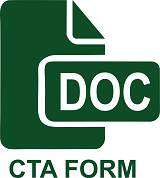POLITICAL DETERMINANTS OF BUDGET DEFICITS: A SURVEY OF LITERATURE
(1) Diponegoro University
Abstract
This paper provides a review of recent developments in the theory and evidence of political determinants of budget deficits. Specifically, we discuss five areas, namely; political system, government fragmentation, ideology, budget procedure and political budget cycles. We also provide evidence of recent studies.
Keywords
Full Text:
PDFReferences
Alesina, A., Cohen, G. and Roubini, N. 1991. “Macroeconomic policy and elections in OECD democracies“ National Bureau of Economic Research Working Paper Series No. 3830.
Alesina, A and Perotti, R. 1994. “The political economy of budget deficits”. International Monetary Fund Working Paper 42:1-37
Alesina, A. and Perotti, R. 1996. “Budget deficits and budget institutions“.National Bureau of Economic Research Working Paper Series No. 5556.
Asian Development Bank Key Indicators Statistics. Downloadable at http://www.adb.org/Statistics/ ki.asp
Barro, R. J. 1979. “On the determination of the public debt“. The Journal of Political Economy 87(5): 940-971.
Beck, T., Keefer, P.E., Clarke, G. R., Walsh, P and Groff, A 2007. DPI 2006 Database of Political Institutios. Development Research Group. The World Bank
Blanchard, O. 2006. Macroeconomics. Prentice Hall
Brender, A. and Drazen, A. 2005. “Political budget cycles in new versus established democracies“. Journal of Monetary Economics 52(7): 1271-1295.
Crain, W. M. and Ekelund Jr, R. B. 1978. “Deficits and Democracy“. Southern Economic Journal 44(4): 813-828.
Drazen, A. 2000. Political economy in macroeco-nomics. Princeton University Press. Princeton, New Jersey.
Dornbusch, R., Fischer, S. and Startz, R. 2004. Macroeconomics 9th Edition. McGraw Hill
Edin, P-A. and Ohlsson, H. 1991. “Political deter-minants of budget deficits: Coalition effects versus minority effects“. European Economic Review 35(8): 1597-1603.
Edwards, S. and Tabellini, G. 1990. “Explaining fiscal policies and inflation in developing countries“. National Bureau of Economic Research Working Paper Series No. 3493.
De Haan, J. and Sturm, J.-E. 1994. “Political and institutional determinants of fiscal policy in the European Community“. Public Choice 80(1): 157-172.
De Haan, J. and Sturm, J.-E. 1997. “Political and economic determinants of OECD budget deficits and government expenditures: A reinvestigation. “European Journal of Political Economy 13(4): 739-750.
De Haan, J., Sturm, J.-E., and Beekhuis, G. 1999. “The weak government thesis: some new evidence“. Public Choice 101(3): 163-176.
Halleberg and Von Hagen, J. 1997. “Electoral institutions, cabinet negotiations and budget deficits in the European Union“. National Bureau of Economic Research Working Paper Series No. 6341.
Hibbs, Jr., D. A. 1977. “Political parties and macro-economic policy“.The American Political Science Review 71(4): 1467-1487.
Hill, R.C, Griffiths, WE and Judge, G.G. 2000. Undergraduate Econometrics 2nd Edition. John Wiley & Sons, Inc.
Huber, G., Kocher, M and Sutter, M. 2003. “Government strength, power dispersion in governments and budget deficits in OECD countries. A voting power approach“ Public Choice 116(3): 333-350.
IMF Statistical Databases - Online Browsers and Documentation, provided by Library of The University of Groningen
Marshall, M.G and Jaggers, K. 2007. Polity IV Data Set (version 2006). Center for Global Policy, School of Public Policy George Mason Univer-sity and Center for Systemic Peace. Down-loadable at www.systemicpeace.org/polity4
Mink, Mark and de Haan, J. 2006. “Are there political budget cycle in Euro Area“. European Union Politics 7(2):191-211
Nordhaus, W. D. 1975. “The political business cycle“. The Review of Economic Studies 42(2): 169-190.
Perotti, R. and Kontopoulos, Y. 2002. “Fragmented fiscal policy“. Journal of Public Economics 86(2): 191-222.
Persson, T and Tabellini, G. 1997. “Political Economics and Macroeconomics Policy”. National Bureau of Economic Research Working Paper Series No.6329.
Persson, T and Tabellini, G. 2000. Political Economics : Explaining Economic Policy. The MIT Press
Rogoff, K and Sibert, A. 1988. “Elections and Macroeconomic Policy Cycles”. Review of Economic Studies. 55:1-16.
Roubini, N. 1991. “Economic and political determinants of budget deficits in developing countries“. Journal of International Money and Finance 10 (Supplement 1): S49-S72.
Roubini, N. and Sachs, J. 1989a. “Political and economic determinants of budget deficits in the industrial democracies“. European Economic Review 33: 903-938
Roubini, N. and Sachs, J. 1989b. ”Government spending and budget deficits in the industrial countries”. Economic Policy 4(8): 100-132.
Shi, M and Svensson, J. 2002.”Political budget cycles in developed and developing countries”. Working Paper IIES. Stockholm University.
Shi, M and Svensson, J. 2003. ”Political budget cycles: a review of recent developments”. Nordic Journal of Political Economy.
United Nation Statistics Division, http://unstats.un. org/ unsd/default.htm
Volkerink, B. and de Haan, J. 2001. “Fragmented government effects on fiscal policy: new evidence“. Public Choice 109(3): 221-242.
Von Hagen, J. 1991. “A note on the empirical effectives of formal fiscal restraints”. Journal of Public Economics 44:99-210
Von Hagen, J. and Harden, I. 1996. “Budget processes and commitment to fiscal discipline“. European Economic Review 39(3-4): 771-779.
Woo, J. 2003. “Economic, political, and institutional determinants of public deficits “. Journal of Public Economics 87(3-4): 387-426.
Refbacks
- There are currently no refbacks.

This work is licensed under a Creative Commons Attribution 4.0 International License.






